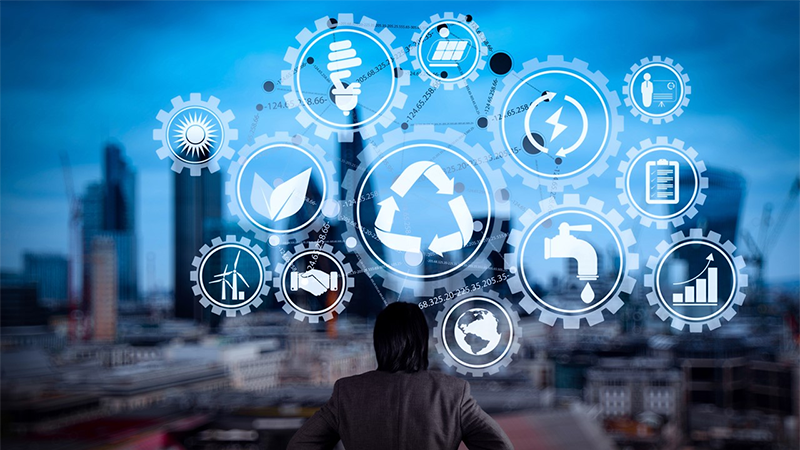When indicators stop working
12 July 2021

Coming into the new year, sustainability continues to be at the heart of future development opportunities. As more stringent regulations come into force, actors along the ICT supply chain will continue to pursue sustainability efforts to meet them.
The pandemic has called into question the way we conduct business. With pressure from climate change increasing at an alarming rate, this pandemic has presented an opportunity for governments, organizations and consumers to rethink their practices. Sustainability has been a key area of discussion in 2021 and this will only accelerate in 2022.
A rise in sustainability-related regulations
2022 will see many sustainability initiatives, both general and specific to the ICT sector. The European Union (EU) is at the forefront of creating new initiatives. One of its major regulations that will concern most verticals is the Corporate Sustainability Reporting Directive (CSRD), which will come into force in late 2022. This is designed to harmonize sustainability reporting metrics across companies to ensure comparability and facilitate investor decisions. This regulation will cover almost 50,000 companies, replacing the Non-Financial Reporting Directive (NFRD) that currently applies to 11,000 organization in the EU.
From an ICT perspective, and in line with the 2020 Circular Economy Action Plan and the European Green Deal, the EU is planning to introduce a regulation regarding the sustainable design of mobile phones and tablets as part of the Ecodesign Directive (introduced in 2009) to ensure that these devices are energy efficient, durable, reusable and recyclable. It is expected to come into force in the fourth quarter of 2022.
Circularity will continue to dominate discussions
While the pandemic has significantly reduced emissions (mainly due to the fall in travel), the rise in demand for remote-working equipment resulted in more waste being generated. Channel partners have reacted relatively slowly to the mounting pressure of climate change. A Canalys channel study in June 2021 found that 26% of respondents have not thought about sustainability targets. 2022 will see more partner programs designed to encourage channel partners to make their long-term strategies more environmentally sustainable.
As demand for IT hardware and services continues to grow, the need for a circular model will be vital. This will result in a rise in eco-focused partnerships with specialists that will facilitate the transition to a circular framework. The clean manufacturing, use and disposal of equipment has been a major topic in 2021 and will continue to gain traction in 2022 as more stringent regulations will be put into force regarding the lifecycle management of IT assets, coupled with new customer requirements. The electronic waste management and recycling market is estimated to reach US$55.3 billion in 2022, presenting a significant growth opportunity for these emerging specialists that can help players across the industry eliminate waste from their operations at scale.
An expectation that everyone has a strategy
The ICT sector has recovered relatively strongly from the disruption caused by the pandemic and will continue to grow as technology advances continue. Investors will start to consider the planet’s welfare when measuring their investment returns. The 26% of partners that have not set their targets with respect to sustainability will struggle to attract interest if they continue to delay. Channel partners such as Atea, Bechtle and Proact have led the way in laying out sustainability strategies for the next decade, with recycling of IT assets and renewable energy use at the core of their roadmaps.